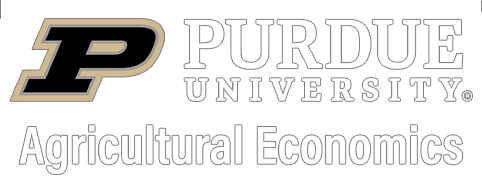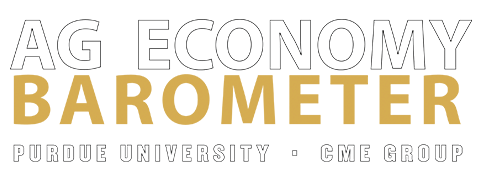Search our entire resource library
You're viewing a specific archive. Looking for something and want to search by keyword or just take a general look at ALL our resources? Click Search below!
Livestock
Indiana corn prices have dropped sharply since September. The most recent WASDE report indicates that corn prices could remain low for the foreseeable future. Obviously, lower expected corn prices will translate into lower expected feed costs during the first part of 2024. What trends in feed costs will we see for 2024? And what’s the impact of corn and soybean meal prices on feed costs for farrow-to-finish and swine finishing operations?
Read MoreFed cattle prices have strengthened the last few months. At the same time, due to lower corn prices, feeding cost of gain has also declined. Partially in response to these two phenomena, feeder prices and breakeven prices have increased substantially.
Read MoreCorn prices have declined substantially since the first half of this year. This article examined the impact of higher corn prices on feeding cost of gain for cattle finishing.
Read MoreIndiana corn prices during the first quarter of this year were on average approximately $6.60 per bushel. The most recent WASDE report indicates that corn prices could be substantially lower for the upcoming crop.
Read MoreFarms and agribusinesses are confronted by many different types of risk in today’s market, including social media. In this third episode in the Farm Risk Management podcast series, Purdue University’s Jenna Nees, Renee Wiatt and Ariana Torres join Brady Brewer to discuss social media’s impact on businesses and how to build a contingency plan to protect your farm.
Read MoreThis article discussed recent trends in feeding cost of gain, the feeder to fed cattle price ratio, breakeven prices, and cattle finishing net returns. Average cattle finishing losses in 2022 were estimated to be approximately $70 per head.
Read MoreIn this second episode of a new series on Farm Risk Management, Jenna Nees, Ed Farris, and Michael Langemeier join Brady Brewer to discuss contingency planning for production risk. Minimizing risk through management practices, reducing production variability, and managing ways to transfer some of the production risk should be reevaluated every year. Implementing diversification, flexibility,…
Read MoreThis article discussed recent trends in feed costs for laying hens. Current projections suggest that feed costs for 2023 will be slightly lower than those experienced in 2022.
Read MoreCorn prices are 25% higher and soybean meal prices are 1% higher. Given that many of the supply and demand factors impacting the 2022 crop are going to persist way into 2023, what are the prospects for feed costs for farrow-to-finish and swine finishing production in the upcoming year?
Read MoreGiven that the U.S. stocks to use ratio is currently only 9.6 percent and continued questions related to U.S. corn acreage in 2022, there is tremendous uncertainty regarding corn prices for the rest of this year. To address this uncertainty, this article examines the impact of relatively high corn prices on feeding cost of gain and net returns for cattle finishing.
Read More


